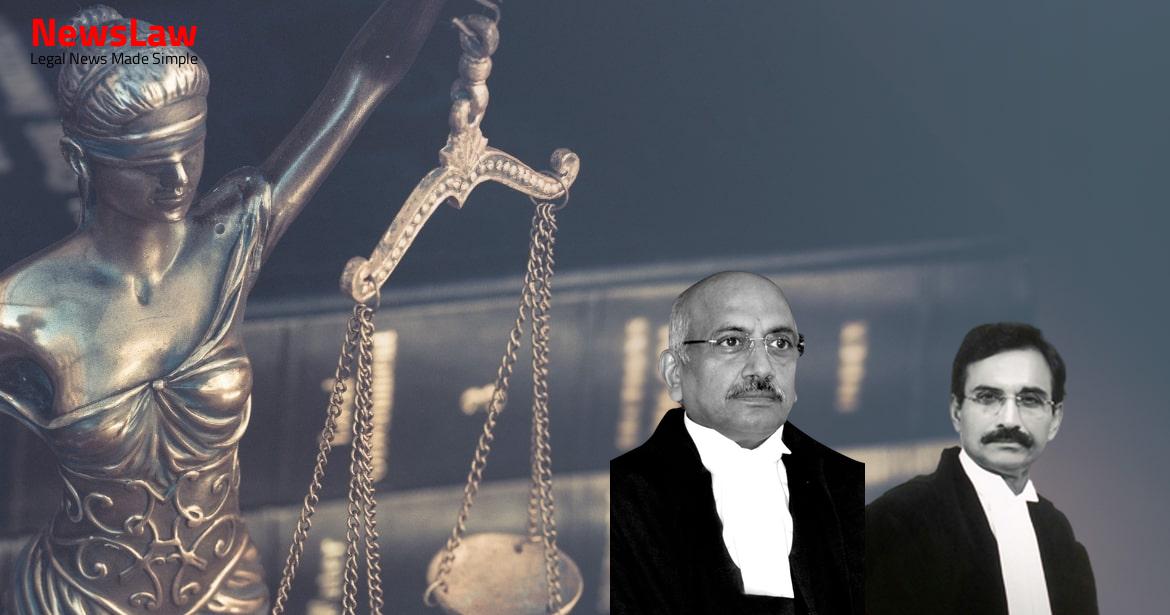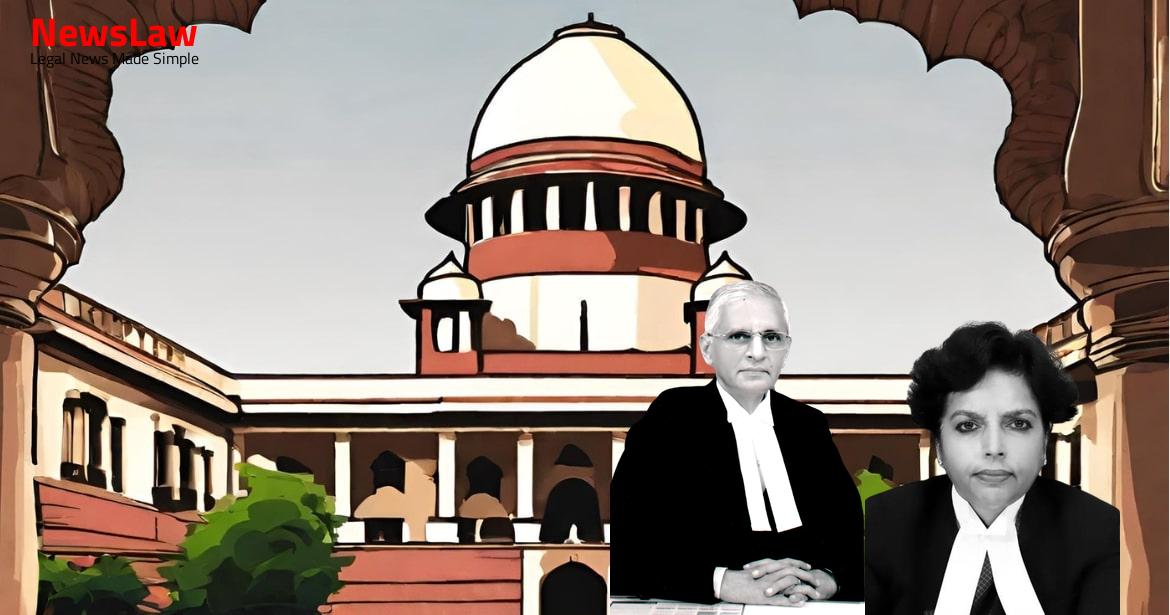In a landmark judgment, the Supreme Court of India ruled on the case of Lt. Col. Om Dutt Sharma vs. Ministry of Defence regarding the entitlement to One Rank One Pension (OROP) for Army Postal Service Personnel. The judgment has significant implications for pension benefits and sets a strong legal precedent for similar cases in the future.
Facts
- The deceased Lt. Col. Om Dutt Sharma was granted the benefit of One Rank One Pension (OROP) in an Original Application filed before the Armed Forces Tribunal, Regional Bench, Jabalpur.
- The legal heirs of Lt. Col. Om Dutt Sharma have been brought on record as he passed away during the appeal process.
- Several individuals (respondent numbers 3 to 86) have been made intervenors in the case as they claim the same OROP benefit that was granted to Lt. Col. Om Dutt Sharma.
- The issue revolves around the entitlement to OROP for personnel of the Army Postal Service, as per the Government of India’s Circular dated 7 November, 2015.
- The deceased was on deputation from the Department of Posts to the Army Postal Service since 1962, and retired after relinquishing his Temporary Commission in the Army as Lt. Colonel.
- The intervenors, who were also on deputation to the APS as either Junior Commissioned Officers (JCO) or Warrant Officers (WO), claim OROP benefits as they retired from the APS upon attaining superannuation and were not repatriated to their parent department.
Also Read: Inheritance Dispute: Validity of Alleged Marriage between Sujathamma and Hanumanthappa
Arguments
- The members of APS on deputation from the Department of Posts serve until the age of superannuation for civil employees of the Union.
- Personnel from the Department of Posts receive pension from the Department of Posts, not the Ministry of Defence.
- The respondents are seen as entitled to One Rank One Pension (OROP) benefits based on Army Instructions 1953 and 1985.
- There is an argument that the respondents’ pension, calculated based on military pay components, is higher than their counterparts in the Department of Posts, showing lack of parity.
- The grant of OROP on November 7, 2015, is considered a beneficial provision for ex-servicemen, including those retired from APS.
- Ex-servicemen according to the Ex-servicemen (Re-employment in Central Civil Services and Posts) Rules, 1979, include personnel retired from APS.
- A comparison is made between the age of superannuation for a Lt. Colonel in the Army (54 years) and a person holding a civil post under the Union (58 or 60 years).
- Different Army Instructions suggest that officers of APS on deputation from the Department of Posts follow civil pension rules for service pension but have the option for military or civil rules for disability or special family pension.
- Respondents argue that as ex-servicemen with ranks conferred by the Army, they are entitled to the benefits of OROP
- It is contended that the Circular dated 7 November, 2015 grants OROP to ex-servicemen and should apply to the respondents
- Referring to Army Instructions 1953, it is argued that the Annexure attached permits service pension
- Counsel argues that respondents carry their Army rank even after retirement
- The Circular dated 3 February, 2016 makes OROP applicable to all Commissioned Officers, including honorary and temporary Commissioned Officers like the respondents
- The Ministry of Defence issued a letter on 7 November, 2015 to implement OROP for ex-servicemen from 1 July, 2014
Also Read: Seniority Determination in Uttarakhand Pey Jal Nigam: Regulation 23 vs Government Order
Analysis
- The officers joining from the Department of Posts have an option to choose military pay or civil pay at every stage of promotion in APS.
- Territorial Army members have been specifically included in the Circular dated 3 February, 2016, which grants benefits of OROP to all pensioners in the rank of Commissioned Officers.
- The Army Instructions of 1985 give members of Department of Posts an option to draw either military pay and allowances or civil pay plus deputation allowance on promotion in Army rank.
- The officials of the Department of Posts continue to have lien over their posts under the Union, they were granted ranks in the Army, but are not considered pensioners of the Armed Forces as per the Circular dated 7 November, 2015.
- The pensioners of APS would be covered by the decision to grant OROP as they were not excluded in the Circular dated 7 November 2015.
- The membership in APS does not automatically equate to being pensioners of the Armed Forces; their pension is governed by civil rules, and they can be recalled by the Department of Posts.
- The members of APS were holding Temporary Commission only for rank benefits, not as Commissioned Officers of the Armed Forces.
- It has been established that the officers of APS would be governed by civil rules for service pension, and there is no option to opt for military pension.
- The Instructions provided options for officers on promotion to draw either military pay or civil pay plus deputation allowance, signifying that they continued to hold lien on civil posts in the Department of Posts.
- The Circulars dated 7 November, 2015 and 3 February, 2016 address pension benefits specifically to Defence pensioners, not all civil pensioners of the Union.
- This Court exercises judicial review by interpreting policy decisions as they exist.
- The Court does not expand the scope of Circulars to confer benefits not originally provided to members of APS.
- The case of Major M.R. Penghal v. Union of India is cited as precedent, where a clerk from the Department of Posts was promoted as Major in the APS.
- Persons deputed to APS from Department of Posts are not entitled to OROP benefit.
- This includes both the respondent and the intervenors.
- The judgment clarifies that the benefit of OROP does not extend to these individuals.
- Their status as deputees excludes them from the OROP coverage.
Also Read: Supreme Court ruling on Guidelines for Oil Company Operations
Decision
- The appeal was allowed.
- The order of the Tribunal was found to be unsustainable in law.
- The order of the Tribunal was set aside.
Case Title: UNION OF INDIA Vs. LT. COL OM DUTT SHARMA (RETD)DEAD THR. LRS
Case Number: C.A. No.-008139 / 2019



